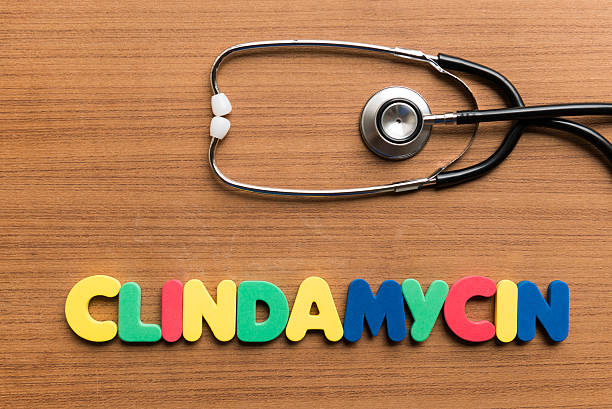Clindamycin is an antibiotic used to treat bacterial infections; it kills the bacteria or stops their growth, and it is available in 3 salts: clindamycin phosphate, clindamycin nicotinamide and clindamycin hydrochloride. All the salt forms have the same antimicrobial spectrum and effectiveness for treating bacterial infections. They can be used topically, intramuscular, or intravenously. The topical form is also used to treat acne and some vagina infections.
Dosage
Clindamycin capsule has 3 strengths: 75 mg, 150 mg, and 300 mg. The injectable solution comes in 150 mg/ml, while the oral solution is available in 75mg/5ml.
The dosage is given based on your condition and response to treatment; in children, it is based on their weight. This drug is usually taken 4 times daily, and since it is used to treat different bacterial infections, your doctor or healthcare provider will prescribe your dosage according to your condition.
However, ensure you do not reduce or increase the dosage without consulting your doctor. Even if symptoms disappear after a few days, continue taking it until the total amount prescribed is finished.
Side Effects of Clindamycin
A common side effect of antibiotics is diarrhoea; if you experience this, contact your healthcare provider before using any anti-diarrhoea medications.
Clindamycin may also cause a severe skin reaction with red or purple skin rash, pain, and peeling. Allergic reactions to this drug include hives, breathing problems, and swollen face, lips, throat, or tongue.
Some other side effects of clindamycin include:
- Metalic taste in your mouth.
- Vagina itching.
- Nausea and vomiting.
- Abdominal pain.
- Throat irritation.
- The buildup of fluid under the skin.
- Impeded kidney function, such as little or no urination.
- Arthritis.
- Blood disorders.
- Impeded liver function.
- Disrupted function of the immune system.
Precautions
Before taking clindamycin, let your doctor know if you have a history of liver disease, intestinal disorder, allergic skin reactions, yellow food dye, asthma, or allergic reaction to aspirin.
It is still unknown whether this drug can harm an unborn baby, but in animal studies, it doesn’t cause any harm during pregnancy. However, the drug may pass into breast milk and cause some side effects in an infant; if you are pregnant or breastfeeding, tell your doctor before using it.
Do not give this drug to a child without consulting a doctor because the injection may contain ingredients that can cause severe side effects or death to very young babies.



